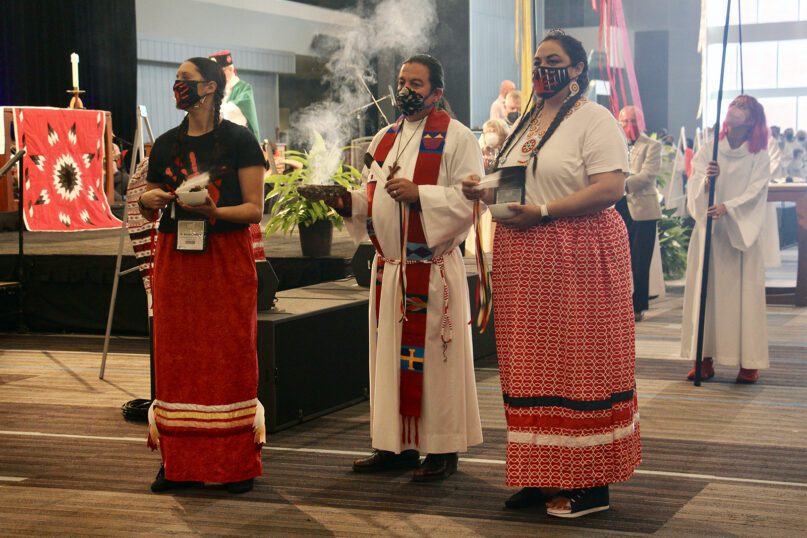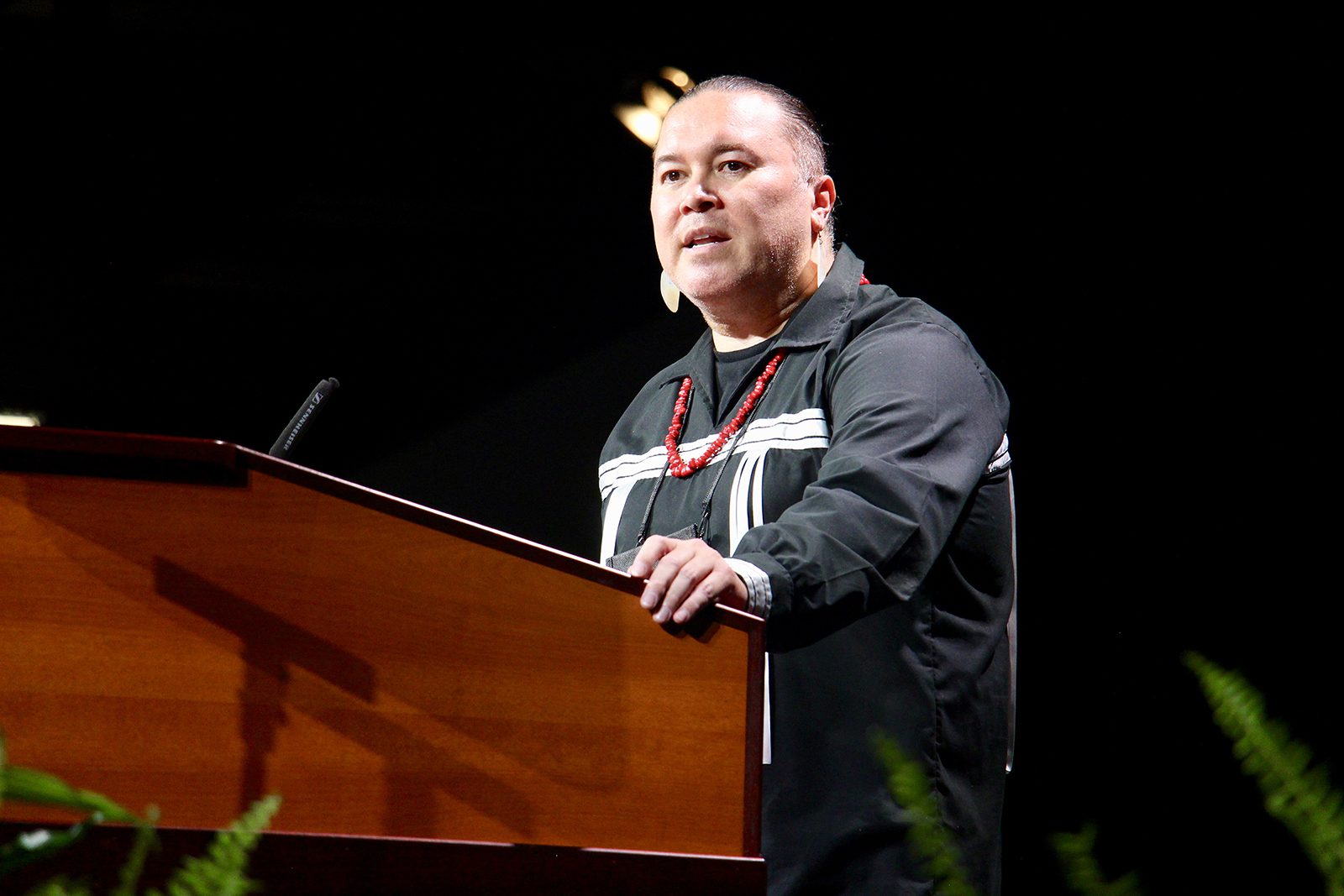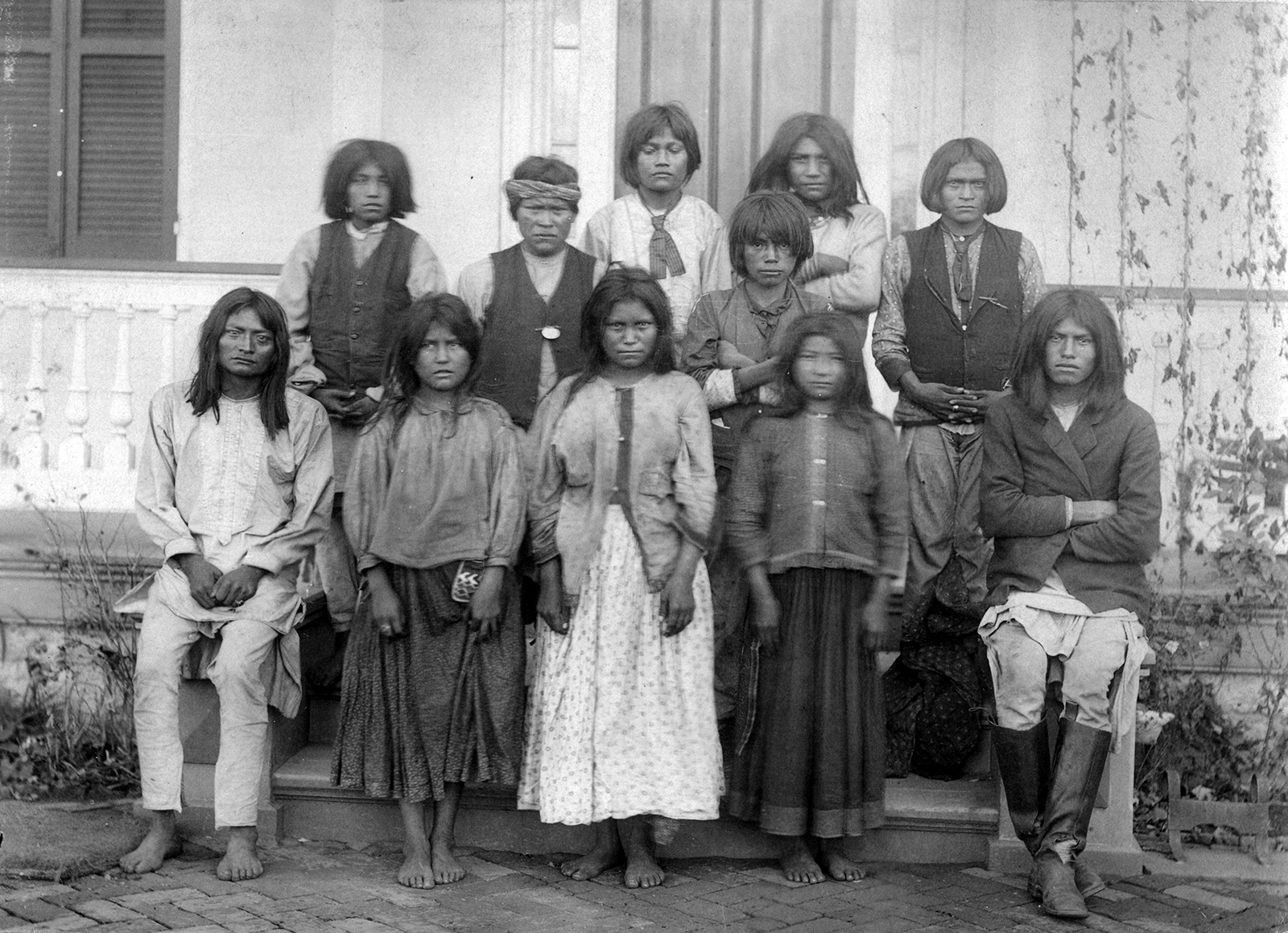Lutherans launch initiative joining Indigenous-led Truth and Healing Movement
‘It’s pretty tremendous that a bishop has commissioned a movement,’ said Vance Blackfox, the ELCA’s director for Indigenous ministries and tribal relations.

(RNS) — The head of the country’s largest Lutheran denomination announced Wednesday (April 12) the Evangelical Lutheran Church in America is launching its own Truth and Healing Movement to help its 3 million members better understand the “colonizing impacts” the church has had on Indigenous people, both past and present.
“We must be in better, right, and healthy relationships with the Indigenous people of Turtle Island,” ELCA Presiding Bishop Elizabeth Eaton said in a written statement. “As we know, the truth and our knowing and embracing it, is the first step toward healing for all of us.”
RELATED: Reckoning with their history, Lutherans issue declaration to Indigenous peoples
The initiative was born out of the mainline denomination’s 2016 repudiation of the Doctrine of Discovery and “A Declaration of the ELCA to American Indian and Alaska Native People,” delivered publicly last year at its Churchwide Assembly in Columbus, Ohio.
But the ELCA didn’t start the movement, according to Vance Blackfox, the denomination’s director for Indigenous ministries and tribal relations.
Rather, Blackfox said, the ELCA is joining an informal movement unfolding across the United States started by Indigenous people to educate and heal the country and its relationship with those who first lived on the land.

Vance Blackfox, director for Indigenous ministries and tribal relations for the Evangelical Lutheran Church in America, addresses the ELCA Churchwide Assembly, Aug. 10, 2022, in Columbus, Ohio. RNS photo by Emily McFarlan Miller
“It’s important for us to recognize that Indigenous peoples have expertise in these areas already and that we as a church are not the experts,” said Blackfox, a citizen of the Cherokee Nation.
“For so long, all of our denominations have behaved so paternalistically. (They’ve) acted like Native people didn’t know what (we) were doing all along. We’ve always known what we were doing and what we needed.”
RELATED: Denominations repent for Native American land grabs
The Doctrine of Discovery, backed by a series of 15th-century papal bulls, provided the theological justification for the domination by European Christians of lands already inhabited by Indigenous peoples. The ELCA’s repudiation included pledges to acknowledge and repent of the denomination’s complicity in colonialism, to develop resources to educate those inside and outside the church about the impact of the doctrine and to partner with Indigenous peoples rather than view them as the target of missionary endeavors.
Eaton commissioned a task force to lead that work, including the development of “A Declaration of the ELCA to American Indian and Alaska Native People,” which pledges to eliminate racism and white supremacy in the denomination, develop Indigenous leaders and encourage the return of land to Indigenous peoples.
The Truth and Healing Movement is equipping Lutherans to continue those efforts, focused between Easter and Advent this year.
“It’s pretty tremendous that a bishop has commissioned a movement,” Blackfox said.
RELATED: On day of remembrance, churches confront their role in Indigenous boarding schools
The movement takes its name from efforts to create a Truth and Healing Commission in the U.S. to reckon with the country’s past Indian boarding school system, similar to Canada’s recent Truth and Reconciliation Commission.

Native American (Chiricahua Apache) boys and girls pose outdoors at the Carlisle Indian Industrial School in Carlisle, Pennsylvania, after their arrival from Fort Marion, Florida, in November 1886. Photo by J. N. Choate/Creative Commons
The ELCA has begun digging into Lutherans’ involvement in Indian boarding schools, with volunteers currently combing records in 15 synods across four states. Its ELCA Truth-Seeking and Truth-Telling Initiative, the group of volunteers conducting that research into boarding schools, is expected to expand that work to a total 27 synods in the coming months.
But the Truth and Healing Movement, while it includes the boarding schools initiative, is much broader than that, according to Blackfox. It also includes conservation, fighting for the Indian Child Welfare Act amid recent legal challenges and advocating for Indigenous representation everywhere.
The ELCA is also encouraging Lutherans to join nationwide efforts to raise awareness of Missing and Murdered Indigenous Women and Girls during the month of May, which is MMIWG Awareness Month. While Indigenous women and girls are disproportionately likely to experience violence or go missing, their cases are rarely logged as missing persons or covered by the media.
As part of the movement, the ELCA has developed a guide to help Lutherans create meaningful land acknowledgments, rituals acknowledging the Indigenous people who first lived in a place. Additionally, the denomination is developing what it calls an “appropriate settler narrative from a Lutheran perspective,” a Lutheran history describing what settlers did on this land and what they have been complicit in.
No comments:
Post a Comment